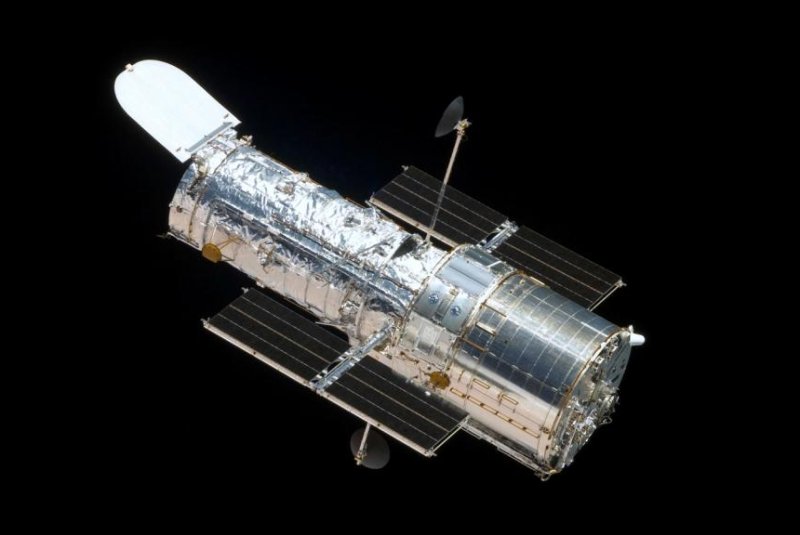Hubble's Wide Field Camera 3 is offline due to hardware issues. Photo by NASA
Jan. 9 (UPI) -- The Hubble Space Telescope's Wide Field Camera 3 has been turned off due to hardware anomalies, according to an update from NASA.
"Hubble is still conducting science observations with its other instruments (one camera and two spectrographs) -- more than enough to keep the observatory active for the near future," Cheryl Gundy, deputy news chief at the Space Telescope Science Institute told UPI in an email.
There are concerns, however, that "engineers are unlikely to be able to fix the aging telescope until the ongoing U.S. government shutdown ends -- whenever that might be," according to the science journal Nature.
Like many of the space telescope's instruments, the Wide Field Camera features a level of electronic redundancy that could allow engineers to recover the instrument, even if the initial problem can't be repaired.
However, bringing the the camera back online will require some troubleshooting, an effort that could be complicated by the ongoing government shutdown.
"Hubble will continue to perform science observations with its other three active instruments, while the Wide Field Camera 3 anomaly is investigated," NASA reported.
Last year, scientists were forced to suspend all Hubble observations after one of gyroscopes, which help orient the telescope, stopped working.
Miraculously, engineers remedied the problem by rebooting the system.
Hubble has been in space for nearly 30 years and, not surprisingly, has suffered a variety of technical difficulties through the decades. The space telescope has previously been forced to rendezvous with the Space Shuttle for repairs and updates.
But each time Hubble has faced a setback, the telescope has proved resilient. Still, Hubble is getting old and the end of its lifespan is getting closer.
Hubble's successor, the powerful James Webb Space Telescope, is scheduled to be carried to space by an Ariane 5 rocket from French Guiana in 2021.















